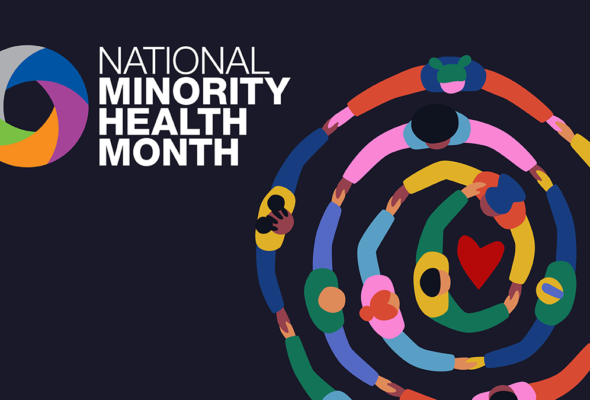In the healthcare industry, the regulatory landscape is constantly evolving, and healthcare payers continually struggle to stay up to date.
The problem? Organizations are developing tools to mitigate healthcare regulatory compliance risks as they happen.
What can set you apart from other health plans is to be proactive by identifying the risk early and developing a mitigation strategy to address the problems before they even occur.
So, how can you do this? It’s simple.
You need to develop an effective plan that allows for flexibility in addressing regulatory changes by creating continual awareness and developing a culture of corporate compliance embraced by the highest to the lowest levels of employees.
In this article, you will learn how developing and implementing a healthcare corporate compliance program can give you a competitive advantage over competitors that fail to take action to ensure corporate compliance is woven into the fabric of the organization and culture.
This is achieved by affirming the organization has implemented preventive measures to reduce any potential compliance risk.
But first, let’s discuss what regulatory compliance is.
What is Healthcare Regulatory Compliance?
Regulatory compliance is a set of processes and controls that support your organization’s corporate compliance program and establishes a culture with an expectation that all employees exhibit strict adherence to the policy and regulations.
For instance, regulations involve issues such as the safety of those you serve, access to healthcare services, healthcare provider and facility relationships, patient privacy, and government reimbursement.
- Health Insurance Portability and Accountability Act (HIPAA)
- Anti-Kickback Statute and Stark Law
- The Health Information Technology for Economic and Clinical Health (HITECH) Act
- Affordable Care Act (ACA)
Furthermore, regulatory compliance for plans, payers, and other healthcare organizations requires a high level of knowledge and understanding of the regulations, policy, execution, and precision in delivering healthcare services.
Why Does it Matter?
Reputational risk can occur in various ways and result in organizational and financial damages, including loss of business and brand value. Additionally, financial, civil, and criminal fines can be assessed against an organization if the Centers for Medicare & Medicaid Services (CMS) determines a healthcare organization has violated the regulations.
For example, CMS may penalize payers when a provider does not have accurate information, like out-of-date directories.
An additional requirement under development and review within the Interoperability Final Rule is the payer-to-payer data exchange. The rule states that health plans in the CMS market must ensure accurate and timely information.
Healthcare organizations cannot miss a single directive, even when it seems minor. This is where a robust corporate compliance plan can easily demonstrate an ethical and responsible approach to being a good steward of federal and state healthcare dollars.
Benefits of a Healthcare Regulatory Compliance Plan
While some may see corporate compliance as a barrier to business development and growth of an organization, an effective corporate compliance plan can be a competitive edge.
Increase Member Satisfaction
CMS requires the completion of annual surveys by Medicare Advantage members to determine their level of satisfaction. Plans that make compliance a priority should lead to more satisfied customers, which can help in determining the plan’s CMS Star Ratings.
These ratings can affect and determine your reimbursement rates, expansion, and growth, justifying why health plans must allocate resources to compliance and make it a priority.
Additionally, when potential members consider new health plans, they often see your ratings as a determining factor. Therefore, improving your star ratings can attract and increase the number of new members.
Speaking of attracting new members, that brings us to our next benefit.
Attract & Retain Members
With social media and the internet at your members’ fingertips, they will research your online presence. If they identify any reported corporate compliance or regulatory issues, it may sway them toward your competition.
 Additionally, following compliance regulations often leads to better quality care for your members. Your members will trust you more and appreciate their improved experience; and in return, be more likely to retain their membership and share with their friends and family, which can provide organic growth for your organization.
Additionally, following compliance regulations often leads to better quality care for your members. Your members will trust you more and appreciate their improved experience; and in return, be more likely to retain their membership and share with their friends and family, which can provide organic growth for your organization.
Provide Better Service
Think of regulatory compliance as an incentive to provide a better experience to your members. Corporate compliance creates transparency in your organization and improves the quality of your data and additional protections for your client and member records.
When information is shared freely with your members and their providers, you can ensure they receive better care that is medically necessary and improves health outcomes.
Avoid Legal Issues
As you already know, following HIPAA regulations and protecting patient privacy is required by federal and state law, which means you are responsible for securing any data you transmit or have stored.
When you create and implement processes to ensure you follow laws and protect your members’ privacy, you will confirm your organization remains in compliance with the U.S. Department of Health and Human Services (HHS) requirements.
Barriers to Compliance
While your compliance & ethics team is a champion of adhering to regulations, your entire organization is responsible for maintaining compliance.
Unfortunately, some common barriers include:
- Ineffective leadership
- Unmotivated staff
- Lack of appropriate resources
- Lack of training & education
Here’s how to solve these roadblocks.
Lead By Example
As cliche as it may sound, it is true. When you display compliant and ethical behavior during your day-to-day interactions with your team, they tend to follow the modeled behavior, becoming a habit.

Motivate Team Members with Rewards
Simply announcing new processes and corporate compliance goals is not always enough to motivate individuals to adopt the values and change behavior. Publicly praising and rewarding employees for taking steps to prevent corporate compliance errors reinforces compliant and ethical behavior.
Provide Resources to Properly Implement Programs
Even when both leaders and employees are on the same page, team members may lack the resources or capabilities to address compliance conflicts. Give your team the knowledge and technology to enact your compliance plan.
Administer Proper Training & Education
Your compliance & ethics team is charged with developing training that educates and empowers individuals to understand and identify potential compliance issues before they occur.
Now, it is time to build your plan.
7 Key Elements of an Effective Corporate Compliance Plan
Medicare Advantage plans must follow CMS requirements for an effective corporate compliance program.
According to CMS, an effective corporate compliance program must include all of the following 7 elements:
1. Written Policies, Procedures, & Standards of Conduct
Companies must have written documentation that explains their commitment to comply with federal and state requirements.

This documentation provides employees with guidance and standards of conduct for compliance-related issues and opportunities for improvement that employees must abide by to remain a participant in federal and state healthcare programs.
Written documentation ensures that employees are aware of the company’s compliance policies and procedures and assists in preventing potential compliance problems.
2. Chief Compliance Officer, Corporate Compliance Committee & High-Level Oversight
CMS requires the Chief Compliance Officer (CCO) to maintain independence from business operations to avoid self-policing, which can create a conflict of interest. Enforcing this standard means the CCO’s responsibilities cannot include conducting or overseeing daily operational functions.
The Corporate Compliance Committee should consist of senior management and departmental managers with decision-making capacity who participate in quarterly meetings.
The Committee’s primary purpose is to oversee the compliance and ethics programs, such as training, risk assessment, and Corrective Action Plans implementation.
3. Effective Training & Education
Here’s a fact: You should always develop and institute regular, effective education and training programs for all associates and first-tier, downstream, and related entities (FDRs). This is a key responsibility of your CCO.
Your Compliance & Ethics Program should also incorporate training into its daily educational programming to ensure compliance with ethical standards.
Next, all employees should complete training on topics, such as compliance, HIPAA, fraud, waste, and abuse prevention. These materials should be reviewed annually and updated whenever there are regulatory changes, new policies, or guidance. The Compliance & Ethics Department tracks the training completion, content quality, and participation timeliness.
4. Strong Lines of Communication
Your CCO should maintain a virtual open-door practice and be easily accessible to all employees. The CCO should also offer several communication options, such as in-person meetings or email.

Build an environment where all associates feel comfortable approaching the CCO with questions or concerns. You can achieve this by creating a safe space for confidential and anonymous reporting of suspected compliance violations.
5. Well-Publicized Disciplinary Standards
Next, your disciplinary standards should set the guidelines for when an employee or FDR commits any acts of non-compliance. Disciplinary actions should be consistently applied and imposed fairly and equitably.
Special consideration may apply, depending on the severity of the offense and the level of harm to Medicare beneficiaries, which may require immediate action up to the suspension or termination of employment or contract.
6. Set Up Routine Monitoring, Auditing, & Identification of Compliance Risks
Through audit work plans, monitoring activities, and other sources for identifying potential risks, your Compliance & Ethics team should perform regular monitoring and auditing of operational activities to ensure compliance with federal and state standards.
Conduct an annual risk assessment to determine the highest risk areas and develop an audit work plan accordingly.
Upon completion of these activities, any corrective action requirements can be identified, where applicable, and reporting can then be provided to the Corporate Compliance Committee.
7. Create a System for Prompt Response to Compliance Issues
Once a compliance issue is reported, initiate a timely investigation. You must determine which regulatory requirements were violated, the cause and intent of individuals or departments involved, and the scope and severity of the violation.
Information on the outcome of the investigation must then be provided to the reporting individual if disclosed and to the Corporate Compliance Committee. If necessary, a performance improvement plan, corrective action plan, or other disciplinary action is recommended.
Although completion of any corrective actions is typically handled by management in the affected area, Compliance & Ethics should oversee these actions.
Set Your Corporate Compliance Plan in Stone with HealthAxis
Ready to transform your corporate compliance plan? Work with an organization that takes corporate compliance as seriously as you do.
“HealthAxis is committed to conducting business with the utmost integrity and in accordance with all laws and regulations. We have built our honorable reputation and exceptional culture through our employees’ unwavering principles and upholding our core values.” Robert Nolan, Chief Compliance Officer.
Our Chief Compliance Officer, Rob Nolan is involved in the day-to-day operations of the corporate compliance program and is responsible for developing and implementing education and training programs for all associates and related entities.
At HealthAxis, our Compliance and Ethics Program provides our clients with operational guidance and safeguards against fraud, waste, and abuse.
With the right technology partner on your side, your organization can navigate the ever-changing regulatory landscape without risk. Request a demo today to see our solutions in action!



